I am what the general population, politicians and the mainstream media (MSM) would call a conspiracy theorist. While I don’t agree with their definition of the term, there’s not much point in me denying it. It is applied to me, and millions like me, whether we like it or not.
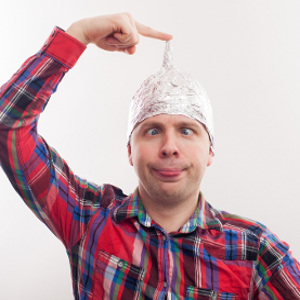
For those who deem conspiracy theorists to be some sort of threat to society, we are the social and political malcontents who lack reason and hate our democratic way of life. We are trolls, bots and disinformation agents on social media, probably employed by the Russians, the Chinese or Iranians.
We are supposedly hellbent on sewing the seeds of discontent and can be found protesting against every government policy and decision. Alternatively, we are arrogant fools, both anti-science and evidence averse, who trot out crazy theories based upon little knowledge and no evidence. Apparently this is a very dangerous thing.
Thus we come to the glaring contradiction at the heart of the concept of the loony conspiracy theorist. Conspiracy theorists are both imbeciles, who don’t have any proof to back up anything they say, while simultaneously being dangerous subversives who threaten to destabilise democracy and foment chaos.
Which is it? It can’t be both. Unless society is so fragile it cannot withstand the opinions of idiots.
So where does the idea that fools present a threat to “our way of life,” come from? What is it that the conspiracy theorists say that is so dangerous? Why do their opinions seemingly need to be censored? What are governments so worried about?
What is a Conspiracy Theory?
Some definitions are required here. From the Cambridge online English dictionary we have:
Misinformation: [noun] wrong information, or the fact that people are misinformed.
Disinformation: [noun] false information spread in order to deceive people.
Fake News: [noun] false stories that appear to be news, spread on the internet or using other media, usually created to influence political views or as a joke.
Conspiracy: [noun’] the activity of secretly planning with other people to do something bad or illegal.
Theory: [noun] a formal statement of the rules on which a subject of study is based or of ideas that are suggested to explain a fact or event.
Conspiracy Theory: [noun] a belief that an event or situation is the result of a secret plan made by powerful people
It is notable that Cambridge University Press have introduced the concept of “secret” into their definition. By describing something as secret you are suggesting that it is impossible to know what it is. This added notion of secrecy is not commonly found in other dictionaries.
Nor is it present in the legal definition of conspiracy. Blacks Law Dictionary defines conspiracy as:
Conspiracy: In criminal law. A combination or confederacy between two or more persons formed for the purpose of committing, by their joint efforts, some unlawful or criminal act.

Obviously conspirators would like to keep their plans hidden. But that doesn’t mean they always remain so. If all conspiracies were “secrets” nobody would ever discover any of them. Known conspiracies, such as Operation Gladio, Iran Contra, the Lavon Affair, the 2001 anthrax letter hoax and so on, would not have been exposed had people not highlighted the evidence which proved their existence.
The notion of the “secret conspiracy” is not one most people called conspiracy theorists would recognise. Often the whole point of our argument is that the conspiracies can be quite plainly evidenced. Most of that evidence is in the public domain and freely available.
More often conspiracy theorists are concerned with the denial or obfuscation of the evidence. It is not that the evidence doesn’t exist, rather that it either isn’t reported at all or is hidden by labelling those who do report it conspiracy theorists.
We can define “conspiracy theory” simply to mean: the reporting of evidence indicating a plan between two or more people to commit an illegal or nefarious act.
We can add that a conspiracy theory is an opinion or an argument. The merit of which is solely defined by the strength or weakness of the evidence.
However, if you read Wikipedia a very different definition is suggested. Suddenly conspiracy theory means an attempt to ignore other more plausible explanations. It is a theory based upon prejudice or insufficient evidence, it resists falsification and suffers from circular reasoning. It has left the realms of logical deduction and become a matter of faith.
This rationale is some distance away from the dictionary and legal definitions. It relies heavily upon opinion and is highly subjective. It is a pejorative definition which claims to be based in science, though the scientific evidence is feeble to non existent.
This depiction of the delusional conspiracy theorist, as described by Wikipedia, is the popularly accepted meaning. Perhaps we can agree, the narrative we are given about alleged conspiracy theorists broadly runs like this:
“Conspiracy theorists forward arguments that are unfounded. These are based upon limited knowledge and lack substantiating evidence. Most conspiracy theorists are simply wrong and unwittingly spread misinformation. However, prominent conspiracy theorists spread disinformation and have used their large followings on the Internet to create a dangerous phenomenon called ‘fake news.’ Many of those with the largest followings are agents for foreign powers. They use a global network of trolls and bots to advance their dangerous political agenda. This is designed to undermine our democratic way of life and valued political institutions. Therefore all conspiracy theory is anti democratic and must be stopped.”
It is difficult to understand how democracies, which supposedly value freedom of thought, speech and expression, can be threatened by diversity of opinion. Yet it appears many people are willing to ignore this contradiction and support government attempts to censor information and silence the voices of those it labels conspiracy theorist. Which is genuinely anti-democratic.
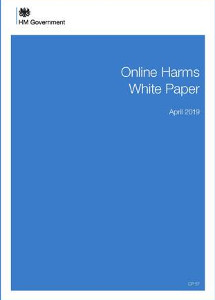
Consequently it has become relatively straightforward for politicians and the media to refute evidence and undermine arguments. As long as they can get the label of conspiracy theory or theorist to stick, most people will discount their arguments without ever looking at the evidence.
The label of conspiracy theorist is an umbrella term for a huge array of ideas and beliefs. Some are more plausible than others. However, by calling everyone who challenges accepted norms a “conspiracy theorist” it is possible to avoid addressing the evidence some offer by exploiting guilt by association.
For example, many people labelled as conspiracy theorists, myself included, believe even the most senior elected politicians are relatively low down the pecking order when it comes to decision making. We suggest powerful global corporations, globalist think tanks and international financial institutions often have far more control over policy development than politicians. We can cite academic research to back up this identification of “Biased Pluralism.”
We do not believe the Earth is flat or the Queen is a lizard. However, because we believe the in biased pluralism, politicians, mainstream academia and the media insist that we must also believe in flat Earth and lizard queens.
Psychology is often cited as evidence to prove conspiracy theorists are deranged, or at least emotionally disturbed in some way. Having looked at some of this claimed science I found it to be rather silly and anti-scientific. But that is just my opinion.
However, unlike many of the psychologists who earn a living by writing junk science, I do not think they should be censored nor stopped from expressing their unscientific opinions. However, governments across the world are seemingly desperate to exploit the psychologist’s ‘work’ to justify the silencing of the conspiracy theorists.
This desire to silence people who ask the wrong questions, by labelling all as conspiracy theorists, has been a common theme from our elected political leaders during the first two decades of the 21st century. But where did this idea come from?

The History of the Conspiracy Theorist Label
Conspiracy theory is nothing new. Nearly every single significant world event had at least one contemporary conspiracy theory attached to it. These alternative interpretations of events, which lie outside the accepted or official narratives, are found throughout history.
In 117 CE, the Roman Emperor Trajan died only two days after adopting his successor Hadrian. All his symptoms indicated a stroke brought on by cardio vascular disease.
Yet by the 4th century, in the questionable historical text Historia Augusta, a number of conspiracy theories surrounding Trajan’s death had emerged. These included claims that Trajan had been poisoned by Hadrian, the praetorian prefect Attianus and Trajan’s wife, Plotina.
While we would call this a conspiracy theory today, the term was not commonly used until the late 1960’s. The earliest written reference to something approaching the modern concept of conspiracy theory appeared in the 1870’s in the Journal of Mental Science vol 16.
“The theory of Dr Sankey as to the manner in which these injuries to the chest occurred in asylums deserved our careful attention. It was at least more plausible that the conspiracy theory of Mr Charles Beade”
This is the first time we see an association made between “conspiracy theory” and implausibility. Throughout most of the 19th and 20th century, if used at all, it usually denoted little more than offered explanation allegedly exposing a criminal plot or malevolent act by a group.
After the Second World War colloquial use of “conspiracy theory” was rare. However, academics were beginning to lay the foundations for the interpretation which has produced the label we are familiar with today.
The burgeoning idea was that the large numbers of people who questioned official accounts of events, or orthodox historical interpretations, were all delusional to some degree. Questioning authority, and certainly alleging that authority was responsible for criminal acts, was deemed to be an aberration of the mind.
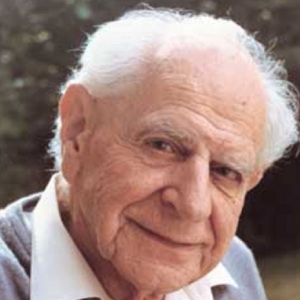
In 1945 The philosopher Karl Popper alluded to this in his political work “The Open Society and Its Enemies.” Popper was essentially criticising historicism. He stated that historical events were vulnerable to misinterpretation by those who were predisposed to see a conspiracy behind them.
He argued this was because historians suffered from cognitive dissonance (the uncomfortable psychological sensation of holding two opposing views simultaneously.) They could not accept that tumultuous events could just happen through the combination of error and unrelated circumstances.
In Popper’s view, these historians were too quick to reject the possibility of random, chaotic events influencing history, preferring unsubstantiated conspiratorial explanations. Usually because they made better stories, thereby garnering more attention for their work.
Popper identified what he called the conspiracy theory of society. This reflected Popper’s belief that social sciences should concern themselves with the study of the unintended consequences of intentional human behaviour. Speaking of the conspiracy theory perspective, he wrote:
“It is the view that an explanation of a social phenomenon consists in the discovery of the men or groups who are interested in the occurrence of this phenomenon (sometimes it is a hidden interest which has first to be revealed), and who have planned and conspired to bring it about.”
Popper also believed that increasing secularism had led people to ascribe power to secretive groups rather than the gods:
“The gods are abandoned. But their place is filled by powerful men or groups – sinister pressure groups whose wickedness is responsible for all the evils we suffer from – such as the Learned Elders of Zion, or the monopolists, or the capitalists, or the imperialists.”
Popper’s theory illustrates the fundamental difference between those labelled conspiracy theorists and those who, on the whole, defend the official narrative and the establishment. For conspiracy theorists the evidence shows that powerful forces have frequently conspired to shape events, control the flow of information and manipulate society. The deliberate engineering of society, suggested by the conspiracy theorists, is rejected by their opponents and critics.
For them the conspiratorial view has some minor, limited merit, but the suggested scale and prevalence of these plots is grossly exaggerated. They see nearly all world events as the result of the unintentional collision between disparate forces and the random influence of fate.
In general, those who reject the questioning of power as “conspiracy theory” consider the powerful largely incapable of malice. Where disastrous national and global events have clearly been caused by the decisions of governments, influential groups and immensely wealthy individuals, these are invariably seen as mistakes.
Any suggestion that the power hierarchy’s destructive decisions may have achieved their intended objectives receives blanket dismissal. Even asking the question is considered “unthinkable.”
For many people called conspiracy theorists this is a hopelessly naive world view. History is full of examples of the powerful using their influence to further their own interests at others expense. Often costing people their lives.
The so-called “conspiracy theorists” suggest that by rejecting the possibility that powerful groups often have malign intent, those who, like Popper, maintain that power is always either benign or error prone, reveal their own cognitive dissonance. They seem unable even to contemplate the possibility that the political and economic power structures they believe in could ever deliberately harm anyone. They essentially have faith in authority and it is not shared by people they label conspiracy theorists.
Following the assassination of President Kennedy in 1963 alternative explanations proliferated, not least of all due to the apparent implausibility of the official account. Many U.S. citizens were concerned that elements within their own government had effectively staged a coup. Others, such as the prominent American historian Richard Hoftsadter, were more concerned that people doubted their government.
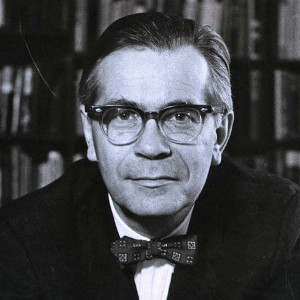
Building on the work of Popper, partly as a critique of McCarthyism but also in response to the Republican nomination loss of Nelson A. Rockefeller, American historian Richard Hofstadter suggested that people’s inability to believe what they are told by government was not based upon their grasp of the evidence. Rather it was rooted in psychological need.
He claimed much of this stemmed from their lack of education (knowledge), political disenfranchisement and an unjustified sense of self importance. He also suggested these dangerous opinions threatened to pollute the body politic.
Like Popper, Hofstadter did not identify conspiracy theorists directly. But he did formulate the narrative underpinning the modern, widely accepted, definition. He wrote:
“I call it the paranoid style simply because no other word adequately evokes the sense of heated exaggeration, suspiciousness, and conspiratorial fantasy that I have in mind…It is the use of paranoid modes of expression by more or less normal people that makes the phenomenon significant…..Of course, there are highbrow, lowbrow, and middlebrow paranoids, as there are likely to be in any political tendency. But respectable paranoid literature not only starts from certain moral commitments that can indeed be justified but also carefully and all but obsessively accumulates “evidence.”….he can accumulate evidence in order to protect his cherished convictions.”
Going to great lengths to focus on the “paranoid’s” tendency to highlight the evidence, as if that were a failing, like most critics of so called conspiracy theorists, Hofstadter chose neither to address nor even mention what that evidence was. He merely asserted that it was unbelievable. The reader just had to take his word for it.
The Warren Commission Report into the JFK assassination drew considerable criticism. The finding that Oswald acted alone contradicted numerous eye witness accounts, photographic, film, autopsy and ballistic evidence. Four of the seven commissioners harshly criticised the report issued in their name. Widely seen as quite ridiculous, in the absence of any sensible official account of the assassination, numerous explanatory theories inevitably sprang up.
In response to the mounting criticism, in 1967 the C.I.A sent an internal dispatch to all field offices called Document 1035-960: Concerning Criticism of the Warren Report. Revealed by a New York Times Freedom of Information Request in 1976, the dispatch is the first written record we have of the combination of Popper’s “conspiracy theory of society” with Hofstadter’s “paranoid style” militant. It defined the modern concept of the conspiracy theorist.
The document states:
“Conspiracy theories have frequently thrown suspicion on our organization, for example by falsely alleging that Lee Harvey Oswald worked for us. The aim of this dispatch is to provide material countering and discrediting the claims of the conspiracy theorists.”
It can be considered as the origin of the weaponised term “conspiracy theory.” It recommends a set of techniques to be used to discredit all critics of the Warren Commission Report. Once you are familiar with them, it is obvious that these strategies are commonly deployed today to dismiss all who question official statements as “conspiracy theorists.” We can paraphrase these as follows:
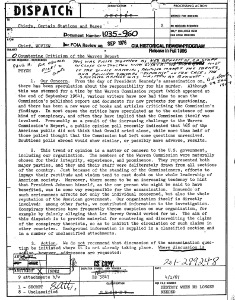
1. Deny any new evidence offered and cite only official reports stating ‘no new evidence has emerged.’
2. Dismiss contradictory eyewitness statements and focus upon the existing, primary, official evidence such as ballistics, autopsy, and photographic evidence.
3. Do not initiate any discussion of the evidence and suggest that large scale conspiracies are impossible to cover up in an open and free democracy.
4. Accuse the conspiracy theorists of having an intellectual superiority complex.
5. Suggest that theorists refuse to acknowledge their own errors.
6. Refute any suggestion of witness assassinations by pointing out they were all deaths by natural causes.
7. Question the quality of conspiracy research and point out that official sources are better.
The report recommended making good use of “friendly elite contacts (especially politicians and editors)” and to “employ propaganda assets to [negate] and refute the attacks of the critics.” The CIA advocated using mainstream media feature articles to discredit people labelled conspiracy theorists.
While the use of these methods has been refined over the years, the essential process of labelling someone a conspiracy theorist, while studiously avoiding any discussion of the evidence they highlight, is extremely common in the mainstream media today. We only need look at the reports about academics who questioned the government’s narrative about COVID 19 to see the techniques in operation.
The drive to convince the public to use only official sources for information has seen the rise of the fact checker. These organisations, invariably with the support of government and corporate funding, are offered as the reliable sources which provide real facts. The facts they provide are frequently wrong and the fact checking industry has settled legal claims from those who challenged their disinformation.
People have been directed by the mainstream media to abandon all critical thinking. They just need to go to their government approved fact checker in order be told the truth.
Providing the public believe the people labelled conspiracy theorists are crazy, ill informed or agents for a foreign powers, the mainstream media, politicians and other commentators can undermine any and all evidence they present. In keeping with the CIA’s initial recommendations, it is extremely unlikely that the evidence will ever be openly discussed but, if it is, it can be written off as “conspiracy theory.”
However, it isn’t just the mainstream media who use the conspiracy theorist label to avoid discussing evidence. Politicians, speaking on the worlds biggest political stage, have seized the opportunity to deploy the CIA’s strategy.
Three Speeches One Agenda
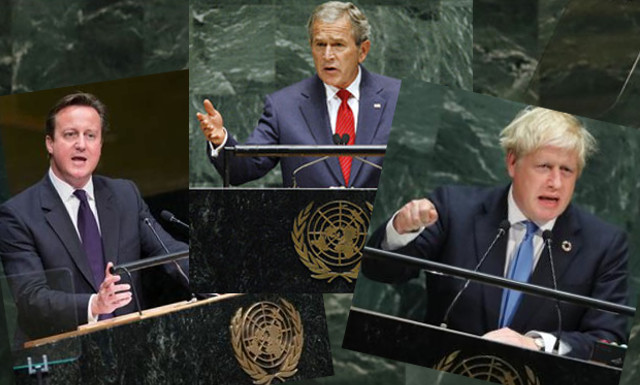
Even for Prime Ministers and Presidents, addressing the General Assembly of the United Nations is a big deal. These tend to be big thematic speeches as the leader impresses their vision upon the gathered dignitaries and global media. Yet, despite the fact that conspiracy theorists are supposed to be idiots who don’t know the time of day, global “leaders” have repeatedly used this auspicious occasion to single them out as one of the greatest threats to global security.
In November 2001 George W. Bush addressed the United Nations General Assembly with the following words:
“We must speak the truth about terror. Let us never tolerate outrageous conspiracy theories concerning the attacks of September the 11th; malicious lies that attempt to shift the blame away from the terrorists, themselves, away from the guilty. To inflame ethnic hatred is to advance the cause of terror.”
Even if you accept the official account of 9/11, and there are numerous reasons why you wouldn’t, how does questioning it suggest that you support terrorism or mark you out as a racist? The suggestion appears absurd, but it does illustrate that the U.S. president wanted both to silence all criticism of the government account and link those questioning it to extremism and even terrorism.
This theme was reiterated by the UK Prime Minister David Cameron in his 2014 address. He said:
“To defeat ISIL – and organisations like it we must defeat this ideology in all its forms…..it is clear that many of them were initially influenced by preachers who claim not to encourage violence, but whose world view can be used as a justification for it. We know this world view. The peddling of lies: that 9/11 was a Jewish plot or that the 7/7 London attacks were staged…..We must be clear: to defeat the ideology of extremism we need to deal with all forms of extremism – not just violent extremism. We must work together to take down illegal online material…………we must stop the so called non-violent extremists from inciting hatred and intolerance.”
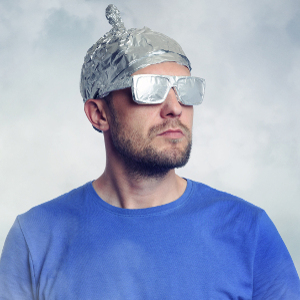
Like Bush before him, Cameron was at pains to identify what he called non violent extremists (commonly called conspiracy theorists). According to him, all who question government accounts of major geopolitical events are, once again, tantamount to terrorists. Calling for online censorship to stop any questions ever being asked, it is this authoritarian need to avoid addressing evidence that led his successor, Prime Minister Theresa May, to propose wide-sweeping censorship of the Internet.
At the time of writing, the UK is among the many nations still in so called “lockdown” following the outbreak of COVID 19. When UK Prime Minister Boris Johnson addressed the U.N General Assembly in September 2019 he delivered a speech which seemed weirdly out of context. With Brexit and possible conflict with Iran high on the agenda his address, which barely touched on those issues, was received with considerable bewilderment.
Six months later his predictive powers appear to be remarkable. It transpires that Johnson’s comments were extremely relevant. Just six months too early.
“There are today people today who are actually still anti-science………A whole movement called the anti-Vaxxers, who refuse to acknowledge the evidence that vaccinations have eradicated smallpox…..And who by their prejudices are actually endangering the very children they want to protect…..I am profoundly optimistic about the ability of new technology to serve as a liberator and remake the world wondrously and benignly…..Together, we can vanquish killer diseases.”
Despite the wealth of scientific evidence which justifies scepticism about some vaccines, anti-vaxxer (a variant of conspiracy theorist), is another label used to convince people not to consider evidence. The assertion is that those who question vaccines all fundamentally reject the concept of artificially inducing an immune response against a disease. This isn’t true but how would you know? The anti-vaxxer label alone is sufficient to convince most to turn away.
Johnson’s speech rambled across so many seemingly irrelevant subjects there is little reason to suspect any COVID 19 foreknowledge. But given the global pandemic that would occur just a few months later, it was certainly prescient. Johnson was sufficiently concerned about the supposedly baseless questions of so called conspiracy theorists (or anti-vaxxers) to allege they killed children. A ludicrous suggestion the mainstream media strongly promoted.
It doesn’t matter that academic research has proven that the official account of 9/11 cannot possibly be true; it makes no difference that Mossad agents admitted that they had gone to New York on the morning of 9/11 to “document the event;” studies showing that approximately 90% of the total 20th Century disease reduction in the U.S. occurred prior to the widespread use of vaccines are irrelevant.
None of these facts need to be known by anyone and governments are going to censor all who try to tell others about them. All questions that reference them are crazy conspiracy theories. They are both stupid questions and a huge threat to both national security and the safety of the little children.
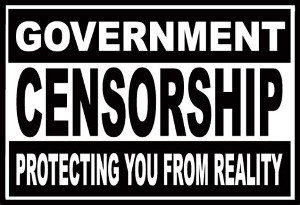 One of the recurring themes the people labelled conspiracy theorists discuss is that policy is made behind the closed doors of corporate boardrooms and policy think tanks. It doesn’t matter who you elect or what party you choose to rule over you, they are only capable of tinkering at the edges of the policy platform. The policy agenda is set at a globalist level. So the fact that, over two decades, one U.S president and two British Prime Minsters were delivering essentially the same message doesn’t surprise the conspiracy theorists.
One of the recurring themes the people labelled conspiracy theorists discuss is that policy is made behind the closed doors of corporate boardrooms and policy think tanks. It doesn’t matter who you elect or what party you choose to rule over you, they are only capable of tinkering at the edges of the policy platform. The policy agenda is set at a globalist level. So the fact that, over two decades, one U.S president and two British Prime Minsters were delivering essentially the same message doesn’t surprise the conspiracy theorists.
As we move toward a world where certain ideas are forbidden and only officially approved questions can be asked, where governments and corporations have a monopoly on the truth and everything else is a conspiracy theory, only one thing really matters. The evidence.
Hofstadter’s believed that his paranoid style militants constant citation of evidence was merely an attempt to “protect his cherished convictions.” This could be true, but the only way to find out is to look at that evidence. The label of the conspiracy theorist has been deliberately created in order to convince you not to look at it.
Regardless of whether or not you think someone’s opinion is a conspiracy theory, you owe it to yourself and your children to consider the evidence they cite. Perhaps you will reject it. There’s nothing wrong with that. But to reject it, without knowing what it is, really is crazy. Your only other option is to unquestioningly accept whatever you are told by the government, globalist think tanks, multinational corporations and their mainstream media partners.
If you choose to believe that everyone who claims to have identified the malfeasance of officials, the crimes of government or the corruption of powerful global institutions, are all conspiracy theorists, then you have accepted that the establishment is beyond reproach. If you also agree the same established hierarchy can not only determine what you can or cannot know, but can also set all the policies and legislation which dictates your behaviour and defines the limits of your freedom, you have elected to be a slave and don’t value democracy in the slightest.
[Please Note: These themes are explored in far greater detail in my book A Dangerous Ideology. FREE to all Iain Davis subscribers.]

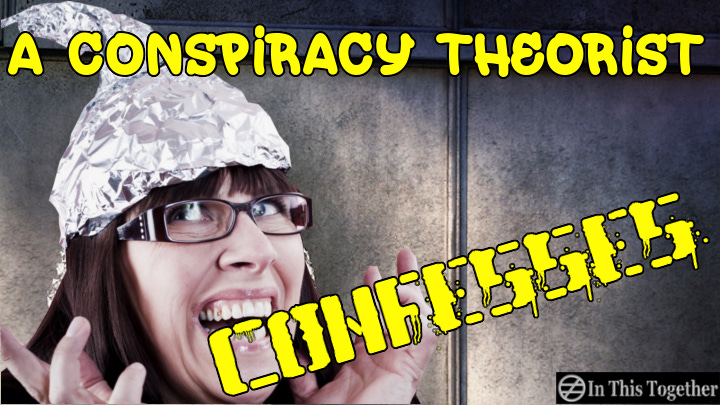
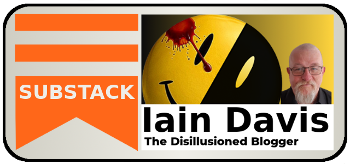

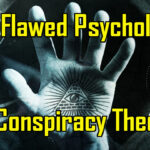
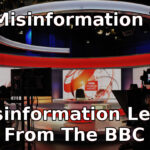
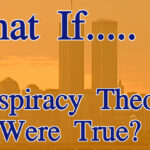
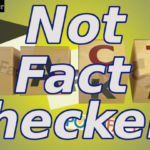
“Your only other option is to unquestioningly accept whatever you are told by the government, globalist think tanks, multinational corporations and their mainstream media partners.”
Iain, you left out the non-mainstream actors and the troll army of the 77th Brigade and sudden ‘expert bloggers’ and such like from that list in your great piece.
Surely there are propagandists, state run, at extreme arms lenghts – you know the agit prop, accidental anarchist types? What is the Integrity Iniatives function in your world view? What about the pretend revolutionaries? There are plenty of such examples in the modern British estalishment – the late Christopher Hitchens for example.
How for instance do we know that you aren’t one of these? Maybe you too can be considered to be guilty of using selective facts and polished PR to tell half truths by omission?
How can we KNOW who is bonafide and who is a worm tongue?
My only recourse is by asking them and holding them to their words. What’s your way of telling?
Thanks D.G. Great question, and short answer you don’t. I can tell you I am just an ordinary bloke who writes a blog in his spare time, and you can go to my about me page if you are that interested in my backstory. However ultimately it is up to you to decide what you do or do not accept and/or believe.
I have written extensively elsewhere about government propaganda operations though less so about 77th Brigade. I recommend UK Column if they are of interest as they are currently doing some excellent exposes of 77th Brigade.
I strive to evidence my opinions and hope to be as objective as possible but of course I have confirmation bias. I’m certain I do use selective facts and omit things I could have included. There’s always far more we don’t know than we do.
Personally I tend not to focus on “who wrote” an article but rather on the evidence presented. I try to consider the political bias the writer may have, mine tends towards an anarchist perspective, but If sufficiently interested I will follow the links and check if the claims are substantiated by the evidence cited. I rapidly lose interest if no evidence is forthcoming, as is often the case with the MSM. “Experts say” doesn’t really cut it for me.
Obviously we should value primary over secondary over tertiary sources. But I would go further and recommend cross referencing those sources with others to see if they are themselves reliable.
I think, over the years, there are a number of sources I have come to trust and I am probably less likely to cross reference their citations but I am still mindful of plausibility. Even for trusted sources I still check the citations if I have any doubts.
I realise most people have neither the time nor the inclination to go to these lengths which is why, I’m afraid, they are prone to the propaganda of the mainstream media (and groups like ii and 77th Brigade.) One of the reasons I write the blog is in the hope of encouraging people not to trust everything they see, hear and read (especially my own work) but rather take the time to find out for themselves if the claims made are plausible.
Not sure if that answers your question but thanks for the comment.
So you admit you are spreading fake facts.
Who are those sources you trust?
Who are the funders?
I will point out the not so expert ‘strawman’ early in your piece.
“Thus we come to the glaring contradiction at the heart of the concept of the loony conspiracy theorist. Conspiracy theorists are both imbeciles, who don’t have any proof to back up anything they say, while simultaneously being dangerous subversives who threaten to destabilise democracy and foment chaos.
Which is it? It can’t be both. Unless society is so fragile it cannot withstand the opinions of idiots.”
There’s at least the third option, not subversive not imbecile but paid for propagandists – agit prop anarchists even?
Whilst I’m here i’ll follow on from my previous exchange which I can’t persue there any more.
Are you planning to update your charts and data from your previous CV articles to include the 2 weeks,soon to be 3 weeks data on all deaths anytime soon?
Lol. Where have I admitted to spreading “fake facts” and what is a “fake fact”? Surely it is a fact or not? If it is fake it isn’t a fact is it? If you think I’ve made a factual error then specify what it is. Who knows, you could be right. No one is infallible.
I’ve made no secret of the sources I trust. I find UK Column, The Corbett Report, 21 Century Wire, Tochnocracy News, Lew Rockwell, GlobalResearch and other generally good quality stuff. Certainly with more evidence provided than any mainstream media news outlets. But as I keep trying to point out, the idea is not to “trust” any particular source but rather check the evidence yourself.
No I don’t think I am planning to add any more articles on shoddy statistics anytime soon. But If I do I am sure you will be among the first to notice.
And how do I know you aren’t 77th Brigade. I don’t. But nor do I care.
Iain,
“Shoddy statistics” you say!
But you also told me at your previous articlle
“that all we can know with any certainty is total “all cause mortality” ”
You produced some snazzy graphs which missed out the upto date data. – which would have disproved your theory.
That was an example of false facts by using selective timing.
Now you refuse to update these graphs, because suddenly they are ‘shoddy’ statistics.
All best with your future writings.
Thanks for the comment D.G. Again you repeat the claim about the timing of articles. I don’t know what to tell you. At the risk of repeating myself, an article has to finish at some point. How you can construe that as “selective timing” is difficult to understand. If I was writing about the history of warfare in 1938 I would have missed out WWII. Would that invalidate the history reported? I didn’t miss the data, the data didn’t exist. You say current figures invalidate the argument. How so? My argument was that the recording of causes of death had become uniquely vague for COVID 19 as the result of a combination of legislation and the resultant regulatory and policy advice. Nothing has changed with more recent figures that has convinced me to alter that view. In fact, if anything, it’s got worse.
“Nothing has changed ” you claim like Trezza May used to.
Yet you summarised your view that CV is just another flu in an extended season with various graphs including this one
https://itt002-itt.netdna-ssl.com/wp-content/uploads/2020/04/WeeklyDeaths.png?x56485
Which is clearly a FALSE FACT to justify your false statement, which was made while the final spike was still increasing.
if you add in the numbers for the ensuing weeks – the spike in total deaths would evidently disprove your false theory about the CV.
Yet you fail to correct your assertion or update the graphs and instead trumpet that you are a conspiracy theorist and proud to spread such fake ‘facts’.
D.G certainly the death rate increased significantly since I wrote the article. I’m not sure what you want me to do about updating an article written weeks before the data emerged. However, I am glad you raised the point about that large increase in deaths. It seems approximately two thirds of them were not due to COVID 19. What explanation can you offer to account for this?
https://www.bmj.com/content/369/bmj.m1931
Mr Davis,
Again you refer to an out of date story to sell your pre determined narrative.
As is specifically stated in that article you raise:
‘While Spiegelhalter acknowledged that some of these “excess deaths” might be the result of underdiagnosis, “the huge number of unexplained extra deaths in homes and care homes is extraordinary. When we look back . . . this rise in non-covid extra deaths outside the hospital is something I hope will be given really severe attention.” ‘
Well he also stated the FACT that not ALL deaths have been tested for CV.
And YOU have stated (correctly – all be it in a comment ) that Excess Deaths were the only real FACT.
Well – the ONS release of analysis in the last two weeks is clear.
All Deaths were BELOW average into the new year. Near the end of Jan that trend took a initial change of trajectory. Followed by the inflection in February. By March the trend was back towards crossing the 5 year average and the exponential trend of Excess Deaths was in full flow by the time of the criminally delayed containment measures of this unidimensional hard BrexShit obsessed government and media and troll army.
The ONS analysis also shows that all the other expected causes of death have followed the trends expected (including from stopping elective surgery deaths and work and traffic related deaths due to shut down) accept for degenerative conditions afflicting the aged who would normally have received care in hospitals.
Hospital deaths reduced as these poor old people were decanted into the community – some obviously would have taken CV to these care homes because they were NOT tested before discharged from hospitals. Care Homes without PPE and sufficient personnel. These non -hospital deaths therefore increased and is the explanation the professor was hinting at.
The Occupational analysis adds further clarity – mostly disproportionate are low paid, low skilled, service people AND more definitively transport workers. Clearly indicating spread via transport of the low skilled workers.
Who are also disproportionately black and asian. So nothing to do with genetic disposition!
Now if you have the gonads and sincerity of actually being able to analyse such FACTS for yourself – do it.
Prove me wrong or admit your narrative is wrong.
https://www.ons.gov.uk/peoplepopulationandcommunity/birthsdeathsandmarriages/deaths/articles/analysisofdeathregistrationsnotinvolvingcoronaviruscovid19englandandwales28december2019to1may2020/technicalannex
https://www.ons.gov.uk/peoplepopulationandcommunity/healthandsocialcare/causesofdeath/bulletins/coronaviruscovid19relateddeathsbyoccupationenglandandwales/deathsregistereduptoandincluding20april2020
Thanks DG for the informative comment. I think you and I differ only in one regard. You clearly accept the suggested COVID 19 mortality figures as indicating deaths “from” COVID 19. For the reasons I highlighted in COVID 19 Is A Statistical Nonsense I do not. However, I will look at the ONS data in more detail and may well write a subsequent post. Thanks for the links.
I agree that *who* says something is not as important as *what* they say, but I think it’s important to look at what *else* they say in order to decide if are reliable judges and users of evidence generally. And I’m afraid that although I absolutely love your articles on the statistical nonsense surrounding Co19, and agree that the fear etc seems unwarranted, has been deliberately encouraged, etc I am not reassured about your capacity for rational balanced thought by your apparent disbelief in the official Kennedy assassination and 9-11 narratives, because I did choose to look into these independently, examine the evidence etc, and I think they seem credible. When I come across people questioning the official Co19 narrative who also question moon landings, 9-11, Kennedy’s assassination, etc, I worry that I might after all be inadvertently wrong about Co19; perhaps it is indeed deadly. Can people be unreliable at evaluating evidence about some things but reliable/in the right about others? Why?/how? If they can read and interpret data well in certain cases how is it they can’t ( imo ) in others? Or are they in fact unreliable across the board and I too am mistaken? I agree that ideally we should each of us evaluate data ourselves, so it’s theoretically not important what anyone else thinks, but it is disconcerting when see others holding opinions that agree with at same time as ones that don’t, because it suggests that it’s all just a matter of belief, that the evidence in all of such cases is about as useful/clear and unambiguous as tea leaves … perhaps clear as day to the right minds but obscure to almost everybody else, and I can’t trust your judgement or my own on anything more complicated than 2+2=4. 😕
Thanks Olivia for a fantastic comment. Firstly I am not asking you to trust my judgement. Please don’t. I would encourage you not to trust anyone else’ judgement. Only your own. Of course we do cede our own authority to others at times. I might trust a Doctor or a Mechanic and follow their advice, but only in regard to the specific detail of the issue in hand. Also it is fine for people to disagree. I am glad you looked at the evidence of 9/11 and the Kennedy assassination independently and agreed with the official narrative of both. I don’t agree with your conclusion but that doesn’t lead me to question your rationality.
I can be rationally and reasonably certain that the official account of 9/11 is not true because that account stated that WTC7 collapsed as a result of fire. There is now scientific and engineering evidence from the University of Alaska Fairbanks that this claim is false. Therefore the official account is not true unless further evidence emerges to rebut the Fairbanks study. Thus far it hasn’t.
Only you know why my disagreement with you on those issues leads you to question my rationality. I think COVID 19 is a deadly disease. For people with underlying health conditions it clearly can significantly impact their health and contribute to their deaths in some cases. The whole point of my previous article is that we cannot know to what extent that has happened because the statistics are unreliable.
I don’t understand why it is disconcerting for you to agree with someone on one subject but disagree with them on another. Which goes back to my earlier response. We don’t need to follow or always agree with anyone. Disagreeing is healthy, we learn far more from debating our disagreements than simply agreeing with points made. So don’t worry about it.
Thank you, Iain, for your reply to my comment. 🙂 And the UoAF ref for more data about building collapse behaviour. The reason that I am disconcerted is that if it is possible for two reasonably intelligent people to disagree on the choice/selection of what constitutes reliable data and to diverge so radically on the interpretations of that data then there seems to be nothing other than consensus/majority or authority/might or sheer personal opinion/subjective opinion to determine what is “true” in anything but the simplest of cases/events. In the case of Co19 I believe that I am paying attention to the opinions/judgements of the “right” experts, scientists and doctors and looking at the “right” study results etc and find myself at odds with governments and most people who mysteriously believe that Co19 warrants lockdown. You believe that you are paying attention to “the right” studies and opinions ref 9/11 and find yourself at odds, etc. If you can be “so wrong” in my opinion, ref 9/11, how do I know that you and me both may not in fact be equally wrong about appropriate Co19 responses/behaviour? Your choice of data and expert opinions does not appear to me, ( who believes the official 9/11 narrative ), to be very reliable. Perhaps mine ref Co19 isn’t either. Perhaps I’m deluded/in denial etc. On the other hand, as you point out, such disagreements are healthy, because they ( in certain cases anyway 😉 ), may lead one to question one’s position again, and again, to check it. Thanks again!
Thanks Olivia
Truth is absolute and immutable. There is only one truth and facts are facts. They can’t be false or fake facts because then they wouldn’t be facts at all. So we are all equally searching for the sole and immutable truth. The debate occurs with our interpretation of the truth. But, no matter what our understanding of the truth, the truth itself remains annexed in perpetuity. We could both be wrong but only because neither of us know what the truth is. That’s OK. It is only by searching for the truth that we have any chance of finding it.
What neither of us can do is hope to find the truth by ignoring evidence. The NIST report of the collapse of WTC7 is evidence from an official source and the University of Fairbanks of Alaska engineering report is evidence from an academic institution. Both deserve to be critically evaluated if the truth is what we seek. The problem comes when only one, the NIST report, is reported to the public and the other, Fairbanks Report, is either not reported or dismissed as a “conspiracy theory.”
In truth both are just pieces of evidence. One is not peer reviewed (the NIST report) and one is (The Fairbanks Study.) I don’t know if any particular value can be drawn from that, peer review is itself fraught with manipulation, but until we can discuss all the evidence out in the open it is absolutely legitimate to point towards a cover up. The only remaining question is why the official account requires a cover up in order to sell its version of events.
Thank you again for answer. I’m not sure I agree with you about “truth” being absolute and immutable, or rather I think that it’s not quite that simple, but I do agree that most unlikely to “find” it by ignoring data. So I checked out the UoAF paper. It didn’t change my mind about 9/11, or not at least about the collapse of that building. First 2 reasons for doubt imo are about provenance; the study was funded by organisation which wanted a certain result, which is almost always a problem, and it was peer reviewed by a journal set up by the same or affiliated organisations. About the study itself I thought 3 things cast doubt on its conclusions; it appears to have modeled the damage based on fire limited mainly to first 13 floors, but photos and film of north side of building show fire spread abundantly to at least 20th floor; one end of the penthouse collapsed significantly earlier than the other which fits with the much greater fire spread on north side, and thirdly the UoAF study only concludes that the collapse would not result from a “normal” office fire, but no normal office fires burn unattended for 8 hours as this one did. Thank you very much all the same for the reference. What I’m curious about is why you ever questioned the official narrative, and what you believe you gain from having “seen through it”. I ask because someone close to me works as scientific advisor to a large governmental organisation and believes that theatres should remain shut for the foreseeable future because of the danger of aerosol diffusion by actors speaking loudly, and approves of certain other elements of lockdown measures. They have been unimpressed by almost every expert opinion piece or collection of data that I have sent them on Co19, criticising either the spurce/site or the persons, or picking holes in the data, describing it as incomplete or misrepresented. … while making astonishingly basic errors, about the differences between CFR and IFR for instance, in ways which suggest that they are actually having trouble *seeing* the data, or processing any that doesn’t fit with their establishment-invested worldview. It makes me wonder how much we are actually able to see anything which doesn’t fit our chosen world view/model of reality. It is invisible and/or unreal to us if it doesn’t. And the question becomes, who or what determines what will qualify as “the” reality/”truth” in that case, if most people *see* it one way, literally do not see the data which belongs to a different one.
PS. Sorry, to clarify, I should have said, more precisely, “our scepticism about the Co19 statistics supposedly justifying lockdowns, etc”.
I imagine you must have already read his work but just in case you haven’t, your article doesn’t refer to him, this guy, Matthias Broeckers, sounds interesting, both on the subject of 9/11 and on conspiracies and Conspiracy theories generally.https://www.amazon.co.uk/Conspiracies-Conspiracy-Theories-Secrets-11/dp/0930852230 He appears to be arguing that conspiracies and the theories about them aren’t taken seriously enough, as an essential part of how complex societies function. Pages 243-250+, available in the excerpt, are particularly interesting about both the issue of “reality”, and its “messengers”, and specifically the events before, during and after 9/11. I may have to buy the book! 🙂 It’s as if a conspiracy theory needs almost exactly the same elements as a good story in order to function. I was drawn to Broeckers’ book by an excerpt in which he referred to/categorised the official narrative as a conspiracy theory itself, and I was suddenly able to see the issue as a battle of conspiracy theories competing for dominance.Thank you again for reigniting my interest in the subject. 🙂
Thanks Olivia If we consider the pejorative definition of “conspiracy theory” to mean a theory about an event which lacks evidence then there are numerous examples of what we might call “official” conspiracy theories. The Skripal poisoning and Russiagate spring to mind. I haven’t read Broeckers book though have read a few of his articles. If the subject interests you I hope you’ve read my book A Dangerous Ideology which is FREE to subscribers, as that covers the same topic.
You have probably already read this but I’m posting a link to it because I am so unexpectedly pleasantly impressed by his arguments, which include lucid analysis of what conspiracy theories are, and do/how they function etc, eg don’t fixate on the details of how buildings collapse but on the perpetrators,and their backgrounds/backstories etc. So glad to stumble on all this as a result of your blog! 🙂
https://www.broeckers.com/english/in-the-begining-there-was-conspiring/
Really glad you have found my blog a trigger for your own research. That is exactly why I created it so nothing could please me more. Thanks Olivia.
Hallo Iain, i just came across your work recently via your interview with Corbett — I have already found your blog useful in directing me to the disturbing aspects of the UK Coronavirus Act, on which I subsequently wrote my own reflection https://thelethaltext.me/2020/05/13/bad-dreams-uks-coronavirus-act-sets-the-stage-for-political-disappearances/
A few years ago I wrote a fairly extensive piece on conspiracy theory in the context of the abuse of psychiatry by totalitarian regimes. I argued that the characterisation of conspiracy theorists by our own media and public intellectuals in the West signals that we are already in a proto-totalitarian situation. The mental health provisions in the Act take us a step closer to that Soviet/CCP-style dystopia. https://thelethaltext.me/2018/11/07/3330/
Keep up the great work, brother. Probs run into you one day in the gulag! 🙂
Thanks Paul. Great work. Let’s hope we don’t meet in the Gulag but you are absolutely spot on to suggest, if a Gulag does emerge, it will almost certainly be within a psychiatric care facility. The elements withing the Coronavirus Act that hugely reduce the burden of medical proof required to section someone, as you rightly pointed out, would seem to have little to nothing to do with protecting people from a respiratory illness. Perhaps it is the “smoking gun.”
Thank you for a great article. Came across it on the OffGuardian and that is how I found this website. I left my comment at the OffGuardian. I would like to know if I can somehow embed your videos on my blog and if it is possible to tweet them out without having to use a screen record or capture app. I will definitely link to this article from my blog. If people cannot see the NWO agenda now they never will. Granted that “Conspiracy theorists” might sometimes be mistaken and sometimes get carried away but they do not deliberately set out to deceive. That is a big and important distinction. Governments deliberately deceive in fact they have departments dedicated to disinformation, psychological behavior, manipulation and propaganda. To think otherwise is childish in the extreme. It is not for nothing that Orwell warned us so long ago. Anyone who dismisses it is either in denial, a useful idiot or a NWO troll. I would rather trust Karen on the internet (even if she is not an expert and is occasionally wrong) than the government appointed scientist.
Thanks Paulus. Here are the links to my various video hosting channels. You can get the embed codes from there:
LBRY: – https://lbry.tv/@InThisTogether:d
3Speak: – https://3speak.online/user/oyddodat
Bitchute: – https://www.bitchute.com/channel/in-this-together/
YouTube: – https://www.youtube.com/c/_InThisTogether
You need one of these!
(some link to a “Tin Foil Hat and Proud” badge)
Well, I don’t know if I need one Bill but I definitely want one. I could stick it on my tin foil covered cowboy hat.
hi:
I came across this via reference in a comment on the wmbriggs.com site.
I have three comments on your blog entry here:
1 – it’s great: best elucidation of the “conspiracy theory” label I’ve seen. Thanks!
2 – I see Hofstader has read and understood festinger but you have not. “Cognitive dissonance” is not directly related to holding opposing values/thoughts/ideas; it’s related to the search for confirmatory information and the refusal to see contradictory info. Remember festinger’s goal was to understand how the fascists (NAZI , Maoist, and Stalinist) got people to enthusistically kill their friends and neighbors.
3 – the big issue with the term “conspiracy theor[ist/ies/y]” is that it’s a one brush tars all label. In reality some conspiracy theories are nuts (9/11 as Jewish conspiracy), some form a continuum from nuts to good sense (ant-Vaxxers), and some are just obviojus truths (the 2020 and 2022 US elections were stolen). Thus the “fact checker” ideal makes sense but because the approved (by Gov’t/Media) fact checkers tend to be politically motivated lazy liars and subject matter incompetents any attempt to implement the idea will fail.
Thanks Paul. Do you have a link to the article in question as I am not sure who is responding to what here. Thanks.